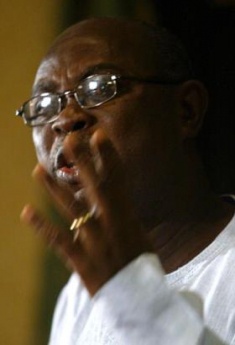
Wacam, human rights, environmental and mining advocacy non-governmental organisation, has organised a livelihood workshop in Obuasi for communities, whose livelihoods have been negatively impacted by the mining activities of AngloGold Ashanti.
Giving the rationale for the workshop, Mrs Hannah Owusu-Koranteng, Associate Executive Director of Wacam, said mining communities suffered violations of civil, political, economic, social and cultural rights when surface mining operations are undertaken in their communities.
She said surface mining operations resulted in the loss of livelihoods of many land-based communities that depended on farming as a major source of income to support their families leading to worsening poverty levels in mining communities.
Mrs Owusu-Koranteng said the livelihood workshop was the first of its kind to be organised by Wacam with the objective of equipping participants, especially women, with livelihood skills to address the problem of livelihood loss and for economic empowerment.
The participants, 80 per cent of whom were women, were drawn from Anyankyirem, Akatakyieso, Amamom, Adaase, Oseikrom, Twiwaaso, Fenaso, Fawoman, Hiampenipa and Mankonoagonso. They were taught tie and dye making, soap-making, small ruminants rearing, savouries and cookies and grass-cutter rearing.
She said women in mining communities suffered the greatest negative impact when the environment is destroyed through surface mining hence the focus on women.
Mrs Owusu-Koranteng said that Wacam had been successful in the protection of the rights of mining communities through its educational programmes and developed a Sustainable Livelihood Network (SULNET) programme about five years ago based on needs assessment it undertook in mining communities.
She expressed gratitude to DKA, a Catholic Charity organisation in Austria, which provided funds for the livelihood skills development workshop, saying that the SULNET had not materialise for many years due to difficulties in securing funding for the project.